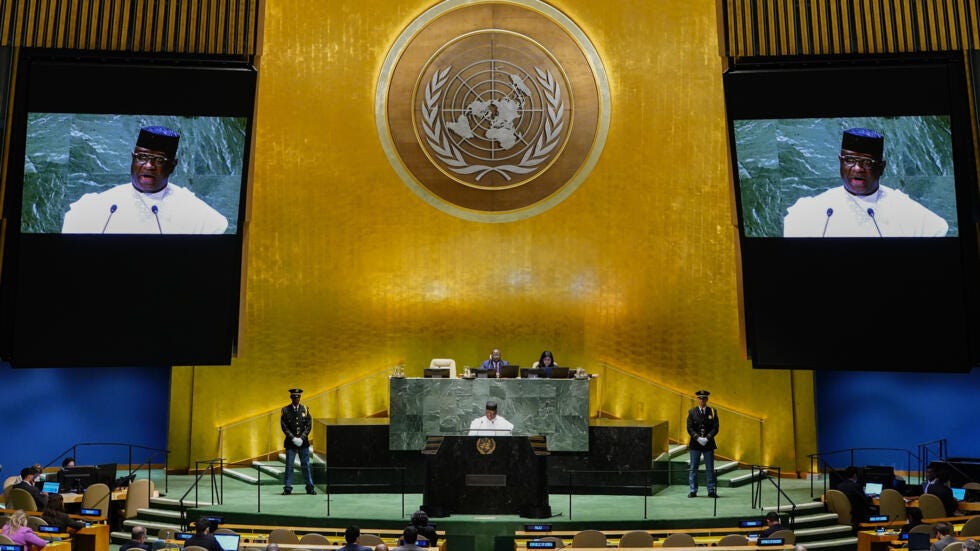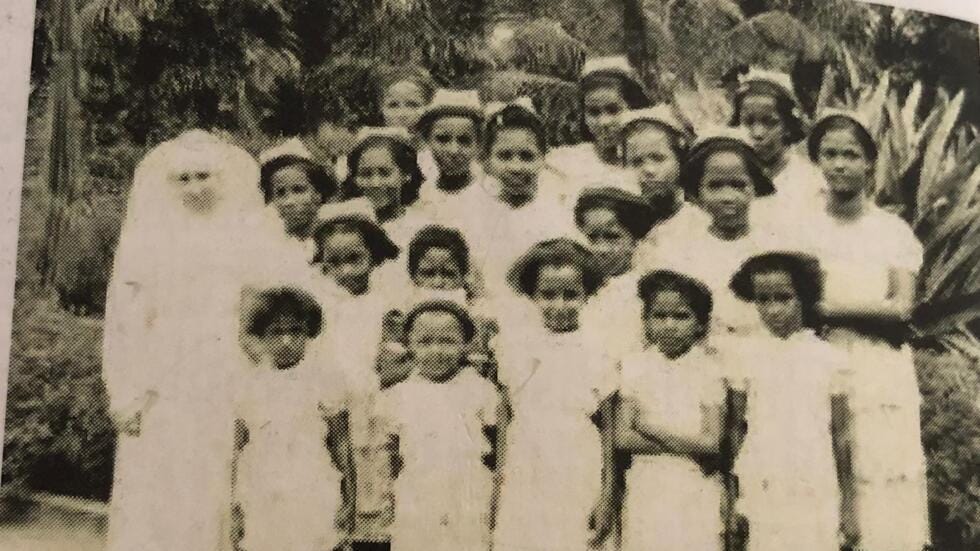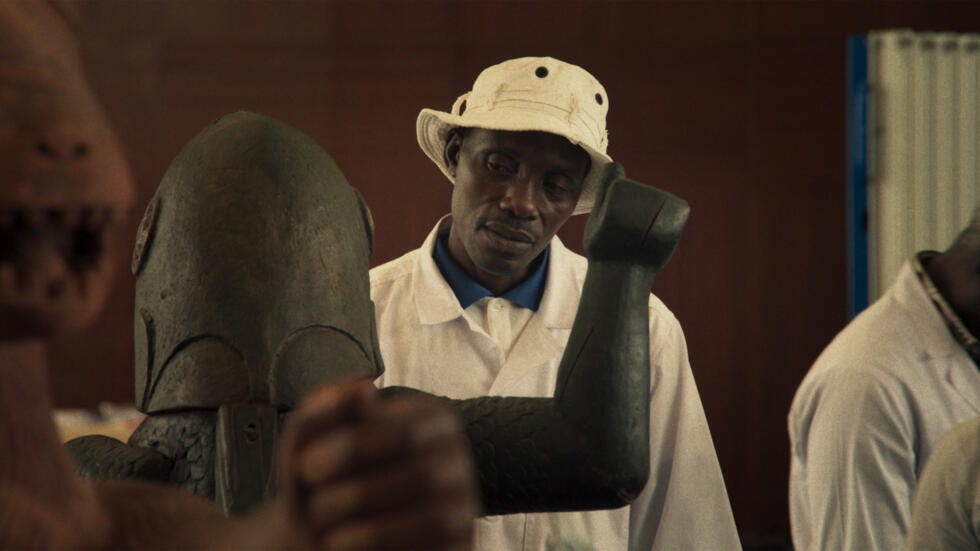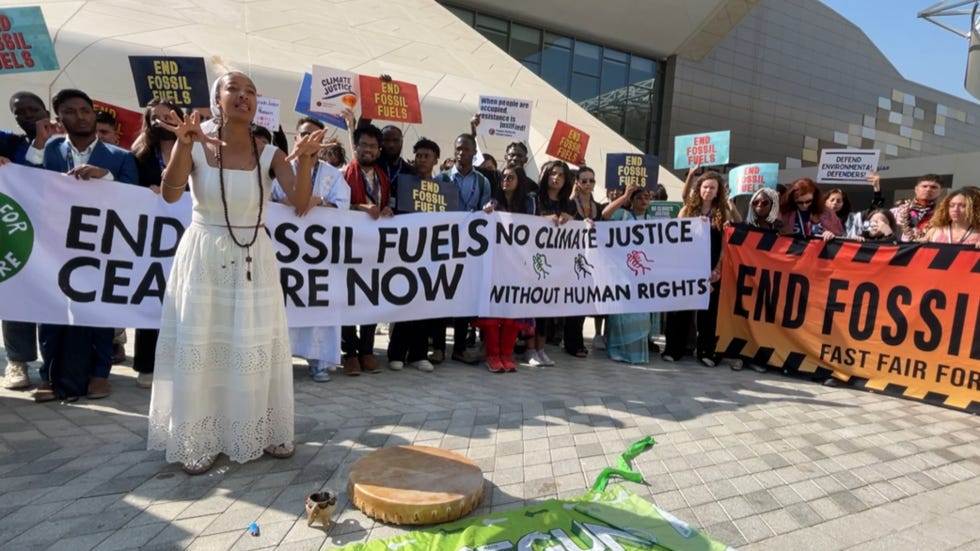Can the balance of power in our world change?
Africa, the Arab World and Asia are done with a diplomacy dominated by the West... Some leaders and human rights advocate want to improve relations, but can it be done in such a conflictual context?
Dear readers,
This week, I’m asking myself big questions.
In 2025, the United Nations, the World Bank, the International Monetary Fund and other key international organisations will celebrate their 80 years of existence.
Founded in 1945, after World War II, to promote peace in our world and cooperation, they didn’t change very much until then, while the world… has been torn apart quite a bit, quite a few times, I’m sure you’ll agree.
Now, many diplomats, human rights lawyers and other activists agree that change is needed urgently, especially as the number of conflicts is dangerously spiralling, from the DR Congo to Sudan, from Ukraine to Gaza, from Ethiopia to insurgency in the Sahel… And post-conflict zones demand better solutions, from Armenia to Latin America.
When the UN was founded in 1945, the council had just 11 members. At that time, much of Africa was still under European colonial rule and consequently has been also un-represented since.
As we all can see however, Africa suffers more conflict, enjoys less growth, and rips deeper consequences from the climate crisis.
Global South nations have for long since 1945 called for better then for permanent representation on the UN’s most powerful tool: the Security Council, at least since the 1960s and the independence of dozens of colonies...
Yet, none of these institutions, none of our platforms to discuss security and trade, have changed.
These past few days, occasions to discuss how and why to change them have arisen more frequently, so here are some thoughts and leads, with some links to my work and more…
Can international organisations like the UN really change?
This past week, I wrote about the institution that is considered as the most powerful of them all: the United Nations’ Security Council.
Here is the first article:
Diplomacy
US backs two permanent seats for Africa on UN Security Council
The US has thrown its weight behind creating two permanent seats for African states on the United Nations Security Council, and one rotating seat for small island developing states. Years of talks about reforming the council have led nowhere, and many doubt whether US backing will be enough to spur real action.
Issued on: 13/09/2024

The US Ambassador to the UN, Linda Thomas-Greenfield, announced on Thursday that Washington supports the move.
Speaking at the Council on Foreign Relations in New York, she said the US wants to “move this agenda forward in a way that we can achieve Security Council reform at some point in the future”.
However, she could not say how long it would take to secure a General Assembly vote on the resolution.
Despite years of discussions, little progress has been made on reforming the council, and it’s unclear if US support will be enough to trigger real action.
Read here: US backs two permanent seats for Africa on UN Security Council
Meanwhile, after important US-Africa and China-Africa summits, discussions are ongoing on how to do better in these North-South relations.
Our contribution at RFI for now:
geopolitics
China’s new strategy in Africa: is the continent getting a fair deal?
China has unveiled a bold new strategy to deepen its influence in Africa – with mixed reactions over whether the continent will truly benefit. At the close of the latest China-Africa cooperation forum, Beijing presented an elaborate proposal to boost African development while securing its own strategic foothold.
Issued on: 09/09/2024

By: Jan van der Made |Melissa Chemam
The Beijing Action Plan is China’s blueprint for the next three years, committing a staggering €46 billion in aid, investments and credit lines.
Building on the Dakar Action Plan – signed in the Senegalese capital in 2021 to strengthen cooperation in trade, infrastructure and development – the new deal promises African countries €27 billion in credit, €10 billion in assistance and €9 billion in direct investment from Chinese companies.
Its unveiling, made during the ninth Forum on China-Africa Cooperation (Focac) held last week in Beijing, marks a key moment in the strengthening relationship between the two regions.
But while the numbers sound promising, questions linger about the true impact on Africa.
Read more from here: China’s new strategy in Africa: is the continent getting a fair deal?
Another key issue regarding a better balance of cooperation between world nations is the one of reparations…
Big chapter here.
Some insight:
Justice
Belgium accused of colonial-era crimes against humanity in Congo
Five mixed-race women demanding reparations from Belgium after being taken from their mothers in Congo 70 years ago took their fight to a Brussels appeals court Monday. The women accuse the country of crimes against humanity over a colonial-era practice that saw them taken from their families and placed in institutions.
Issued on: 09/09/2024

The complaint covers the period 1948-1961 and concerns the entire policy of placing mixed-race children in religious institutions managed by the Church, but which in fact resulted from a racial policy instaurated by the Belgian colonial administration in the Congo.
The five women – now in their 70s – accuse Belgium of crimes against humanity in their native Democratic Republic of Congo (DRC).
They want justice, compensation, and the recognition of these crimes.
The Belgian authorities recognise that between 14,000 and 20,000 children are involved in this case, but, despite their considerable number, their fate has long been ignored, according to RFI's correspondent in Brussels.
to read the whole story: Belgium accused of colonial-era crimes against humanity in Congo
On the role of culture in the debate
'Dahomey' film invites colonial past to speak through Benin's stolen treasures
In her award-winning documentary Dahomey, director Mati Diop imagines the voice of royal treasures looted from West Africa by European colonisers and only recently sent back to their homeland in present-day Benin. She tells RFI she hopes it will prompt reflection on displacement, exile and return – not just of objects, but of people.
Issued on: 15/09/2024

By: Melissa Chemam
Dahomey, released in France this week, tells the story of 26 artefacts stolen by 19th-century French troops from the former African kingdom of the same name, including a throne and sculptures representing the dynasty's warrior kings.
In 2021, the collection was returned from the Quai Branly museum in Paris to Cotonou in Benin.
Diop follows the objects on this journey, travelling with them as they are packed and flown to the presidential palace in Benin, where they are greeted by visitors eager to see their heritage on display at last.
"From the moment they were removed from the display cases in Paris to being packed in crates, right up to arriving in Cotonou, I absolutely wanted to follow everything," she told RFI. "I didn't want to miss anything from the return trip."
- Read on from here: 'Dahomey' film invites colonial past to speak through Benin's stolen treasures
I hope to write further about the issue of art restitution.
For a little more on reparations, a story I wrote a few months ago:
How could countries finance reparations for historical injustices?
Calls are mounting for governments to pay reparations for slavery, colonialism and other crimes, but such projects are often dismissed as unworkable. New research explores the options for making reparations a reality, including debt cancellation and redirecting financial sanctions.
By: Melissa Chemam
Debt relief is one of the most viable ways to deliver restitution to African countries in particular, according to Nasim Salad, senior associate at The Advocacy Team, which co-authored a report on different financial mechanisms that could be used for reparations.
"It's something of real concern at the moment," she says. "Debt relief can free up a lot of resources and allow countries to spend their money on their own social sectors.
"Debt cancellation is something that's already been done, that can be easily done and that can be seen as a form of reparations. That's in our top three recommendations."
A collaboration with international development consultants Development Reimagined, the report ranks financing options according to their effectiveness, cost, implementation time, the political will needed and other criteria.
- Read on from here: How could countries finance reparations for historical injustices?
Meanwhile, wars rage and civilians get killed by dozens a day in Palestine, and the war in Ukraine is lingering for what seems forever…
In Africa, the conflicts and crises in the DR Congo, in Sudan, in Ethiopia, in the Sahel remain completely under-reported.
Just two exemples:
In Sudan
UN mission calls for peacekeeping force in Sudan, suspects war crimes
AFP – Flagrant rights violations by Sudan's warring parties require the deployment of an "independent and impartial force" to protect millions of civilians driven from their homes, UN experts said Friday.
Issued on: 06/09/2024
In Gaza
Former French PM de Villepin denounces 'greatest historic scandal'
The former right-wing premier under Jacques Chirac vilifies the French political and media response to Israel’s onslaught
- 13 September 2024
Former French Prime Minister Dominique de Villepin condemned the ongoing “silence” surrounding Israel’s war on Gaza and criticised the French government's “stepping aside” on the conflict during a radio interview with France Inter on Thursday.
When asked to comment on the appointment of Michel Barnier as prime minister and the political and economic challenges facing France, de Villepin concluded the interview by expressing his anger over the French political and media response to Israel's war on Gaza.
When the journalist brought up the conflict and cited the death toll as provided by "Hamas' health ministry", de Villepin quickly interrupted her.
“I hear that all the time... It is not only the Ministry of Health of Hamas that says that there are 40,000 dead; there are probably many more. Let’s not give the impression that this is a truncated figure,” he said.
Visibly angered, he continued: “No, it is, unfortunately, an everyday reality. In Gaza, bodies are in pieces; hearts are in pieces; souls are in pieces; heads are in pieces.”
Last but not least, the UK advocacy group Global Witness released its annual report on environmental activism, which counts 196 murders documented last year.
Climate activism
Almost 200 people killed worldwide last year trying to defend the environment - report
Nearly 200 environmental and land defenders around the world were murdered in 2023, with Colombia once again the deadliest place for activists, watchdog Global Witness said in a report Tuesday.
Issued on: 10/09/2024

By: Melissa Chemam
"The figure is really chilling," Laura Furones, senior adviser to Global Witness' land and environmental defenders campaign, said in a statement, adding that the report's findings were conservative and figures are likely to be incomplete.
Read on the details, region by region: Almost 200 people killed worldwide last year trying to defend the environment
To close this letter, I’ll quote Jeffrey Sachs, from the Center for International Relations and Sustainable Development (CIRSD):
We are at a new phase of human history because of the confluence of three interrelated trends. First, and most pivotal, the Western-led world system, in which countries of the North Atlantic region dominate the world militarily, economically, and financially, has ended.
Second, the global ecological crisis marked by human-induced climate change, the destruction of biodiversity, and the massive pollution of the environment, will lead to fundamental changes of the world economy and governance.
Third, the rapid advance of technologies across several domains—artificial intelligence, computing, biotechnology, geo-engineering—will profoundly disrupt the world economy and politics.
Our existing institutions, both national and international, are certainly not up to the task of governance in our fast-changing world.
(…)
In a world filled to the brim with ever more powerful weaponry, especially nuclear weaponry, solving the challenge of peaceful cooperation is the most vital challenge of all.
Thanks a lot for reading, and caring.
With best wishes,
melissa
-
Melissa Chemam
Journalist, Writer & Audio Producer
@ RFI English, New Arab, Byline Times...
My blog: https://melissa-on-the-road.blogspot.com/
YouTube: https://www.youtube.com/channel/UCXE4ofFjz0lsRzemjdmFf7w


